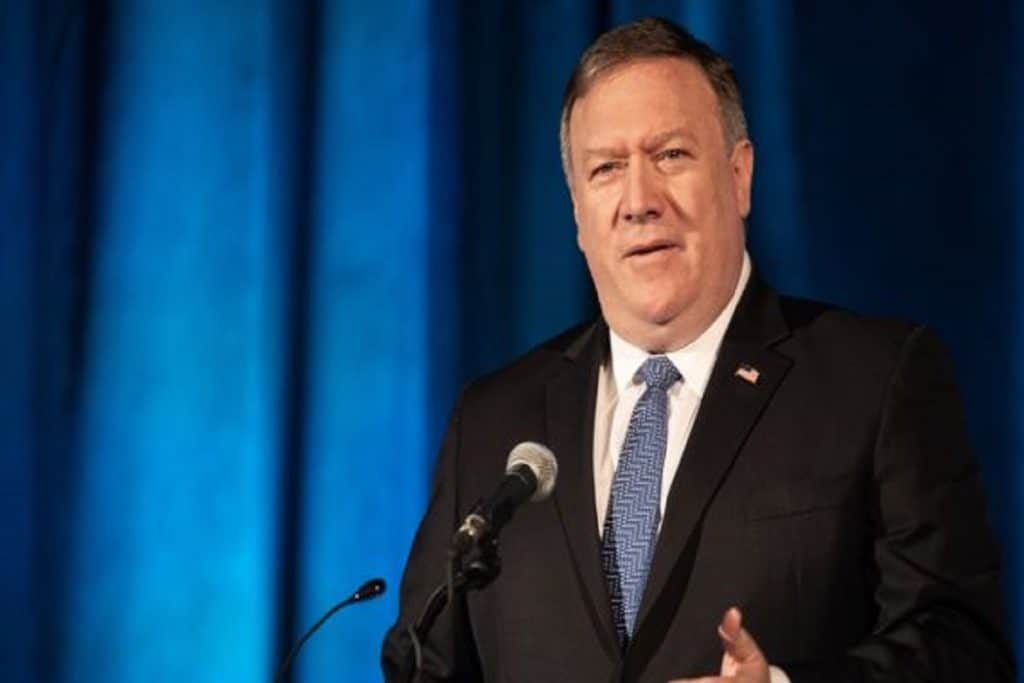By Denis Korkodinov
The pressure from the United States pushed the Ayatollah regime to focus on the maritime trade routes in the Persian Gulf, threatening the organization of a global economic crisis. At the same time, the US Foreign Secretary, Mike Pompeo, stated that even a minor attempt to restrict transportation in the Persian Gulf and the Middle East could lead to an immediate military response from Washington.
Meanwhile, US officials have not yet prepared a legal basis for the anti-Iranian military campaign.
Mike Pompeo has repeatedly pointed out that the White House does not need special permission to start a war with Tehran. Apparently, the arguments of the American politician can be based on the norms of the “ Permit to Use Military Force (AUMF)” of 2001, according to which the US has the right to use its armed forces against persons or states responsible for the attacks of September 11, 2001.
This Permission gives the Head of the White House the possibility to use all the “necessary and appropriate forces” against those who “planned, endorsed, committed or assisted” the attacks of 11/09, or who harbored these individuals.
However, whatever is indicated in the presented regulatory act, Washington’s policy regarding the Ayatollah regime will most likely be built in accordance with a new legal platform. But while the US federal courts are trying to substantiate the actions of Donald Trump, urging on them the norms of international and national law, American lawyers and politicians base their logical constructions on the existing legal norms.
Washington has long dominated the view that the head of state has broad powers to use military force without the prior approval of Congress. The main argument of the supporters of this point of view is Article 2 of the US Constitution, according to which the President of the United States is the supreme commander of all military branches.
However, these presidential privileges may be restricted by Congress on the basis of Article 1 of the Basic Law of the United States, according to which the lower house of the US Parliament is entitled to declare war, to support the army and navy. In addition, the Congress may, at its own discretion, determine which specific military force can be used by the president, what scale of military operations should be and within what time frame the military campaign should be implemented.
At the same time, with the example of Syria, Libya, Yemen and Iran, the requirement for the head of the White House to obey the decisions of the Congress becomes virtually optional. At the present time, for the outbreak of hostilities, the American president needs only the conviction that certain members of the international community are involved in terrorism.
It is also worth noting that the Congress, among other things, oversees the activities of the president in accordance with the 1973 resolution on military powers. According to this resolution, the head of the White House is obliged to inform the Congress whenever he intends to use national armed forces in conflicts. US President Richard Nixon tried to challenge this right of Congress, but, in general, it is still valid. However, already under Barack Obama a new interpretation of the presented regulatory act appeared.
Thus, the resolution of Congress is not required if the US armed forces are involved by the head of the White House to solve short-term problems requiring immediate military intervention. This interpretation has been used by Donald Trump, and it can allow him to conduct military campaigns in Libya, Syria, Iran and a number of other countries almost unhindered.
In addition, Washington is currently seeking to use the norms of international law, and in particular the UN Charter, in its policy on Tehran. The provisions of this constituent document prohibit states from using military force against each other without the appropriate approval of the UN Security Council. However, there is an exception to this prohibition.
Thus, states can use military force for collective or individual self-defense. Such a broad interpretation of the law could allow the United States to launch a military campaign against Iran. But, in this case the Ayatollah regime should be the first to attack.
So the justification of the necessity of a self-defense reaction to an “Iranian threat” could lead to the war.
(The opinions expressed in this article are solely those of the author and do not necessarily reflect the views of World Geostrategic Insights).







